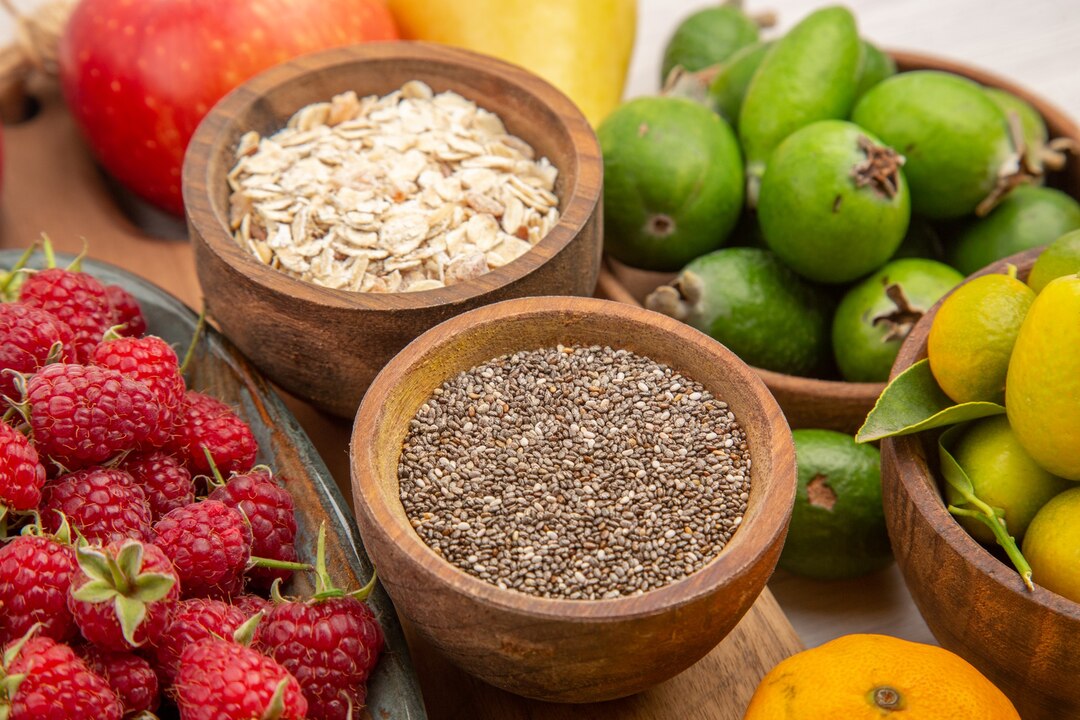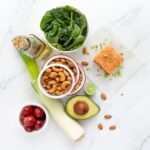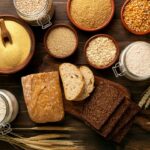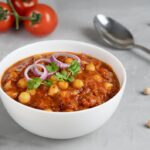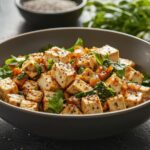We all know that feeling of dragging through the day, wishing for an energy boost. Whether you’re working long hours, juggling multiple responsibilities, or just need a little pick-me-up, your diet plays a key role in maintaining consistent energy levels. Eating the right foods can help fuel your body, keep your mind sharp, and sustain your energy throughout the day. Here’s a list of the best foods to eat when you need an energy boost.
1. Oats
Oats are an excellent source of complex carbohydrates, which provide a steady release of energy. Unlike refined carbs, which can cause spikes and crashes in blood sugar, oats are slow-digesting and help keep you feeling full and energized for longer. Oats are also packed with fiber, vitamins, and minerals like iron and magnesium, which contribute to overall health.
How to eat it: Make a warm bowl of oatmeal for breakfast with some fresh fruit, nuts, or seeds for added energy and nutrients.
2. Bananas
Bananas are a classic energy-boosting fruit. They are rich in natural sugars, such as glucose, fructose, and sucrose, which provide a quick and sustained energy boost. Bananas are also packed with potassium, an essential mineral that helps prevent muscle cramps and fatigue, making them a great snack before or after a workout.
How to eat it: Eat a banana on its own or pair it with peanut butter or yogurt for a balanced snack that provides both protein and carbs.
3. Sweet Potatoes
Sweet potatoes are a nutrient-dense food that provides a slow, sustained release of energy. They are rich in complex carbohydrates and are also a good source of fiber, vitamins (especially vitamin A), and minerals like potassium and magnesium. Sweet potatoes can help stabilize blood sugar levels, preventing energy dips throughout the day.
How to eat it: Roast or bake sweet potatoes as a side dish or mash them for a comforting and energizing meal.
4. Eggs
Eggs are an excellent source of protein, healthy fats, and essential vitamins and minerals. The high-quality protein found in eggs helps build and repair muscles, and the healthy fats provide long-lasting energy. Eggs are also rich in B-vitamins, which play a crucial role in energy production by helping the body convert food into energy.
How to eat it: Scramble, poach, or fry eggs for breakfast or add them to salads and sandwiches for a protein-packed meal.
5. Leafy Greens
Leafy greens, such as spinach, kale, and Swiss chard, are high in iron, magnesium, and vitamins, all of which play a role in maintaining healthy energy levels. These greens help improve circulation and oxygen delivery throughout the body, preventing fatigue. The magnesium in particular supports muscle function and energy production.
How to eat it: Add leafy greens to smoothies, salads, or stir-fries for an energy-boosting meal or snack.
6. Quinoa
Quinoa is a whole grain that is rich in protein, fiber, and complex carbohydrates, making it an ideal food to maintain steady energy levels. It’s also a complete protein, meaning it contains all nine essential amino acids, which are important for muscle repair and overall health. Quinoa’s high fiber content helps regulate blood sugar, preventing spikes and crashes in energy.
How to eat it: Use quinoa as a base for salads, or serve it as a side dish with grilled vegetables or protein for a nutritious and energizing meal.
7. Almonds
Almonds are a great source of healthy fats, fiber, and protein, all of which work together to provide sustained energy. The high levels of vitamin E in almonds also support healthy cell function and may help reduce oxidative stress in the body, preventing fatigue. A handful of almonds can be a quick and satisfying snack that keeps your energy levels stable.
How to eat it: Snack on a handful of raw almonds or mix them into your yogurt, smoothies, or salads.
8. Avocados
Avocados are packed with healthy monounsaturated fats, which provide a steady, long-lasting source of energy. They are also rich in fiber and contain a range of vitamins and minerals, including potassium, which helps regulate blood sugar and prevent energy dips. The healthy fats in avocados also help your body absorb fat-soluble vitamins, improving overall nutrient intake.
How to eat it: Spread mashed avocado on whole-grain toast, add it to salads, or blend it into smoothies for a creamy energy boost.
9. Greek Yogurt
Greek yogurt is rich in protein, calcium, and probiotics, which support digestive health. The protein helps keep you full and energized, while the probiotics promote gut health, which is essential for nutrient absorption. Greek yogurt also contains a good amount of B-vitamins, which are necessary for the body’s energy production processes.
How to eat it: Enjoy Greek yogurt with some fruit and a drizzle of honey or mix it into smoothies for a refreshing snack.
10. Berries
Berries such as strawberries, blueberries, raspberries, and blackberries are packed with antioxidants, vitamins, and fiber. The natural sugars in berries provide an immediate source of energy, while the fiber helps stabilize blood sugar levels and prevent energy crashes. Berries also contain vitamin C, which supports immune function and helps reduce stress, a common cause of fatigue.
How to eat it: Snack on fresh berries, mix them into yogurt, or add them to smoothies or salads for an energy-packed addition.
11. Dark Chocolate
Dark chocolate, particularly varieties with a high cocoa content (70% or higher), is an excellent source of natural stimulants like caffeine and theobromine. These compounds can provide a quick energy boost and enhance mood and focus. Dark chocolate is also rich in antioxidants, which help protect the body from oxidative stress and support overall health.
How to eat it: Enjoy a small square of dark chocolate as a midday treat or add it to smoothies for a delicious energy-boosting flavor.
12. Chia Seeds
Chia seeds are packed with omega-3 fatty acids, fiber, and protein, making them a great source of sustained energy. The high fiber content helps stabilize blood sugar levels, while the omega-3s support brain function and reduce inflammation. Chia seeds are also hydrating, as they absorb water and form a gel-like consistency when soaked.
How to eat it: Add chia seeds to smoothies, sprinkle them on yogurt, or make chia pudding for a nutritious snack.
13. Apples
Apples are a great source of fiber and natural sugars, providing a quick energy boost without causing blood sugar spikes. They also contain antioxidants, vitamins, and minerals that help maintain overall energy levels. Apples are also hydrating, which is important for keeping your body energized.
How to eat it: Enjoy a fresh apple as a snack, pair it with nut butter, or add it to salads for a refreshing and energizing crunch.
14. Beans and Legumes
Beans, lentils, and other legumes are rich in protein, fiber, and complex carbohydrates. They provide a slow, steady release of energy, helping to keep blood sugar levels stable throughout the day. Beans and legumes are also packed with essential minerals like iron and magnesium, which support energy production and prevent fatigue.
How to eat it: Add beans to salads, soups, stews, or make homemade bean dips like hummus for an energizing snack.
Eating the right foods can make a significant difference in how you feel throughout the day. Incorporating these energy-boosting foods into your meals and snacks will help you stay fueled, focused, and ready to take on whatever comes your way. Aim for a balanced diet that includes complex carbohydrates, healthy fats, protein, and plenty of fruits and vegetables to maintain optimal energy levels and support overall health.
